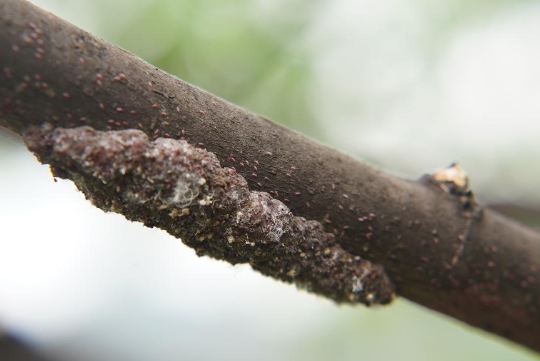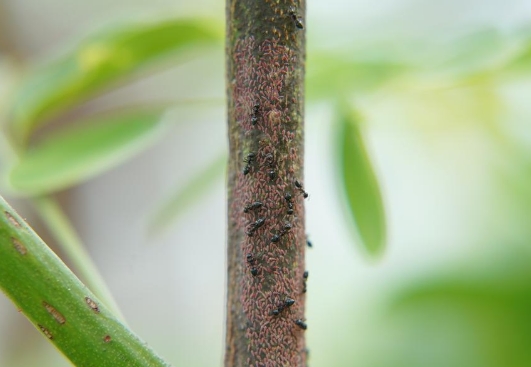French entrepreneur bullish on global prospects of SW China's shellac industry

This photo taken on May 14, 2025 shows shellac and shellac bugs in Yayi Town, Mojiang Hani Autonomous County of Pu'er City, southwest China's Yunnan Province. (Xinhua/Gao Yongwei)
Yannick Benichou, a French national with a master's degree in nuclear energy from Tsinghua University, never imagined his career would lead him to dealing with insects in southwest China's Yunnan Province.
In 2016, Benichou joined Anning Decco Biotech Co., Ltd., a multinational company with over two decades of involvement in Yunnan's shellac industry. Recognizing the global potential of this niche sector, he has been instrumental in driving the company's international growth.
"Shellac was traditionally used in ancient Chinese medicine. Today, it's used in a wider range of things such as chewing gum, candy coatings, chocolate glazing, fruit preservation, and even in carbonated beverages and baked goods," said Benichou, as he showed shellac samples while confidently speaking in fluent Mandarin.
Shellac is a natural resin secreted by shellac bugs as they feed on host trees. Non-toxic, insulating, moisture-resistant and antifungal, shellac has been used for over 3,000 years. While its early applications were largely medicinal, it now finds broad use across the food, pharmaceutical, chemical and high-end manufacturing industries.
China is the world's third-largest producer of shellac, following India and Thailand. As the main shellac production base in China, Yunnan contributes 95 percent of the country's total output.

This photo taken on May 14, 2025 shows ants and shellac bugs in Yayi Town, Mojiang Hani Autonomous County of Pu'er City, southwest China's Yunnan Province. (Xinhua/Gao Yongwei)
In recent years, Yunnan's shellac has gained increasing popularity both at home and abroad.
"Shellac trees are particularly well-suited to Yunnan's mountainous terrain. They are easy to manage, yield quick returns and deliver high economic benefits," said Chen Youqing, a researcher with the Chinese Academy of Forestry, adding that the crop has become an important means for local farmers to boost their incomes.
Benichou said his company chose Yunnan not only for its long history and abundant shellac resources, but also for its strategic location linking South and Southeast Asia.
He added that the province's rapidly improving infrastructure over the past decade -- especially the launch of the China-Laos Railway in 2021 -- has significantly enhanced the region's connectivity with neighboring countries, further strengthening its role in cross-border trade.
Last year, Benichou's company achieved sales revenue of 84.37 million yuan (about 11.75 million U.S. dollars), with an annual output of 800 tonnes of refined shellac. Its products are now exported to the United States, Spain, Italy, Britain, Israel and South Africa.
Meanwhile, the province's total shellac exports under customs supervision surged 44.2 percent year on year in the first quarter this year, reaching 16.87 million yuan. Key export markets included Britain, Spain, Italy and South Africa, according to Kunming Customs.
Looking ahead, Benichou hopes to turn Yunnan's ecological advantages into economic benefits by expanding into global markets and contributing to rural revitalization across the province.
Editor:伏娅敏
